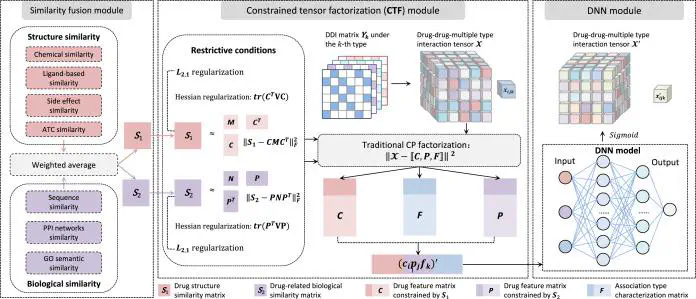 Image credit: Unsplash
Image credit: Unsplash
Abstract
Computational approaches for predicting drug–drug interactions (DDI) can significantly facilitate combination therapy and drug discovery. Existing similarity-based methods often overlook simple yet valuable structural information or ignore multiple relationships from biological entities (e.g., target proteins and enzymes). Meanwhile, matrix factorization-based methods can alleviate the inherent sparsity issues in DDI data. However, this line of work usually only considers the original association information of DDI pairs. To address these issues, we proposed a novel tensor factorization strategy with effective constraint terms (CTF-DDI) for potential DDI prediction. Specifically, we first obtained drug features by constructing specific similarity matrices based on drug structure and drug-related biological associations. Then, a novel constrained tensor factorization(CTF) module was designed to further reconstruct drug similarity by introducing Hessian and regularization as constraints. Finally, we trained a deep neural network to extract nonlinear features for DDI prediction. Experimental results on two benchmark datasets demonstrated that the proposed CTF-DDI model outperforms classical tensor factorization and deep learning models. Furthermore, ablation and case studies validated the performance of CTF-DDI in DDI prediction. The source code of CTF-DDI is available at https://github.com/angelfacedac/CTF_DDI.